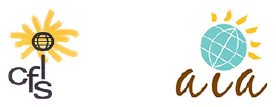Marina Oborotova, Ph.D., CFIS-AIA
March 13, 2020
Riddle, mystery, enigma. The 1200-year history of Russia is a series of questions for which there have never been clear and definitive answers. How could a state and nation arise in the inhospitable environment of the great Eurasian plain, exposed to the constant sweep of peoples, armies, and diverse cultures? How was it that the first great principality of the East Slavs was created by Vikings? How could a people, crushed by Mongol invaders, rise to conquer their conquerors, grasp the legacy of Genghis Khan, and expand across Asia into the Americas? How could a “rude and barbarous kingdom” on the fringe of Europe be suddenly transformed by the will of one man to become a “westernized” great power? How could the empire of the Romanov tsars which seemed to lag behind the “advanced” countries produce, within a century and a half, an elite culture whose, art, music, and literature have had such a profound and enduring impact on the modern world? Why did Russia, after casting off the weight of autocracy in a revolution that promised to liberate all mankind, produce a tyranny more brutal than the one that came before? Why did the communist regime, which imposed such suffering on the Russian people, survive the onslaught of Nazi Germany only to subsequently collapse under the feather touch of well-intentioned reforms? How has Russia endured? What can her extraordinary, tumultuous and tragic past tell us about her future?
Join Marina Oborotova on an exciting virtual sailing through 1200 years of Russian history; through the ups and downs, sharp turns, great victories and horrible defeats. The talk will be illustrated with images of famous Russian paintings, sculptures and architectural complexes.
Dr. Marina Oborotova is the Albuquerque International Association founder and president. She was born and schooled in Russia, worked and lived in Europe, Latin America and for the last 25 years – in the United States. Professionally, Dr. Oborotova is the author of multiple articles and books on foreign affairs. She worked for Russia’s leading think tank, USIC, TC International and taught at UNM’s History and Political Science Departments and the Anderson School of Management.
